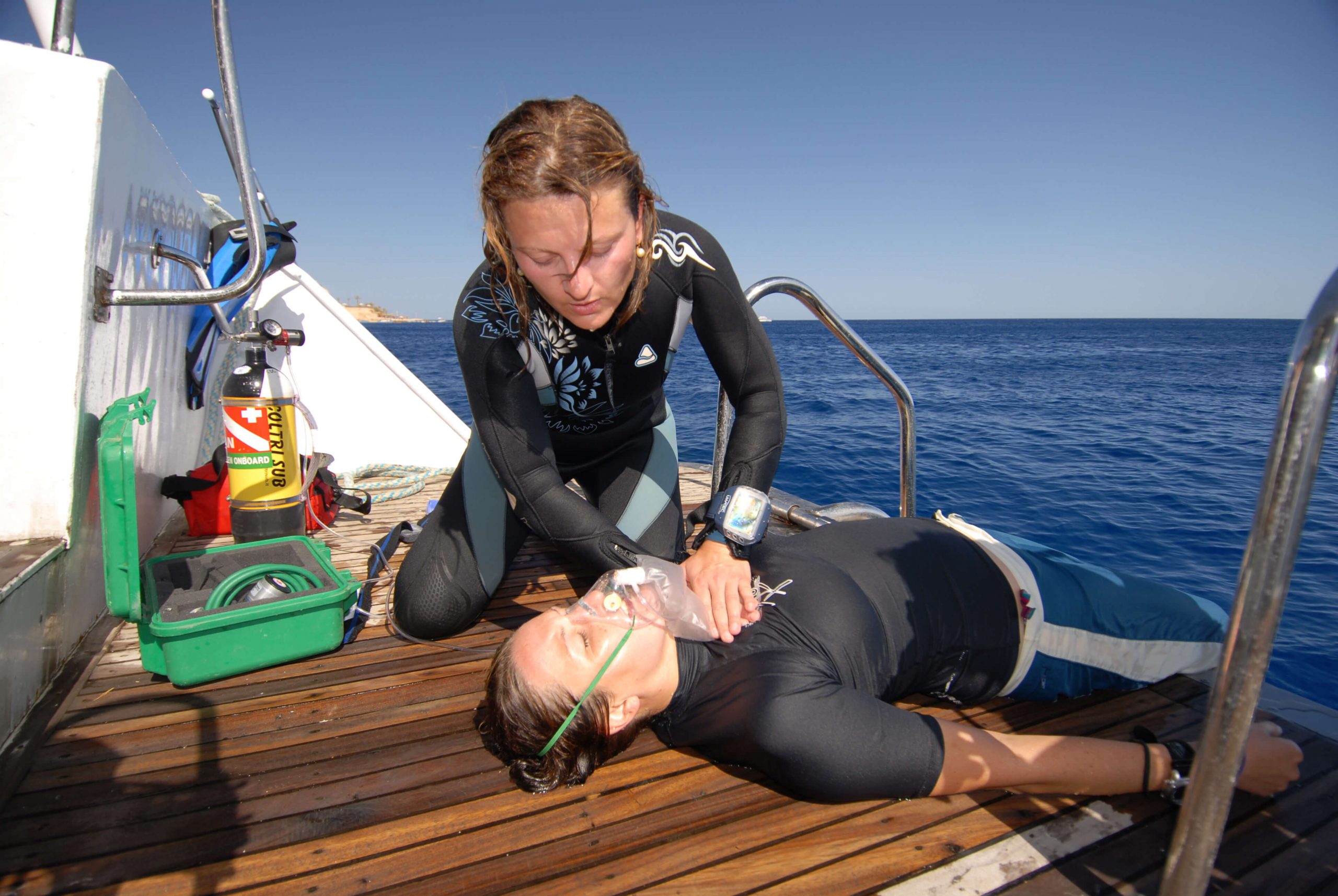Emergency First Response (EFR) training €120 / from
- Duration: 1-2 days
- Minimum requirements: none, available also for non-divers
- Minimum age: none
The fees don’t include:
- Books and certification
About the course:
Emergency First Response training focuses on building confidence in lay rescuers and increasing their willingness to respond when faced with a medical emergency. Course participants learn simple to follow steps for emergency care and practice applying skills in a nonstressful learning environment.
- Primary Care (CPR) – This course teaches you the steps and techniques for handling life-threatening emergencies. You’ll practice eight skills for aiding patients who aren’t breathing, have no heartbeat, may have a spinal injury, may be in shock or who may have serious bleeding. You’ll learn to how to perform CPR and continue to monitor the patient, so that you provide every possible chance of survival while waiting for emergency medical services to arrive.
- Secondary Care (First Aid) – Because many medical conditions are not life-threatening and emergency medical services are sometimes delayed or unavailable, this course teaches you how to provide first aid that eases pain and reduces the risk of further harm. You’ll learn to assess a variety of injuries and illnesses and practice bandaging and splinting.
Emergency First Response (EFR): Empowering Scuba Divers and Lifesavers
When it comes to scuba diving, safety is paramount. As divers, we venture into a unique and sometimes unpredictable environment. In times of emergency, having the knowledge and skills to provide immediate assistance can make all the difference. This is where the Emergency First Response (EFR) course steps in, equipping scuba divers and individuals in general with the essential tools to respond effectively to emergencies. In this blog, we’ll explore what the EFR course entails, its benefits for scuba divers, and how it empowers individuals to be confident first responders both underwater and in daily life.
